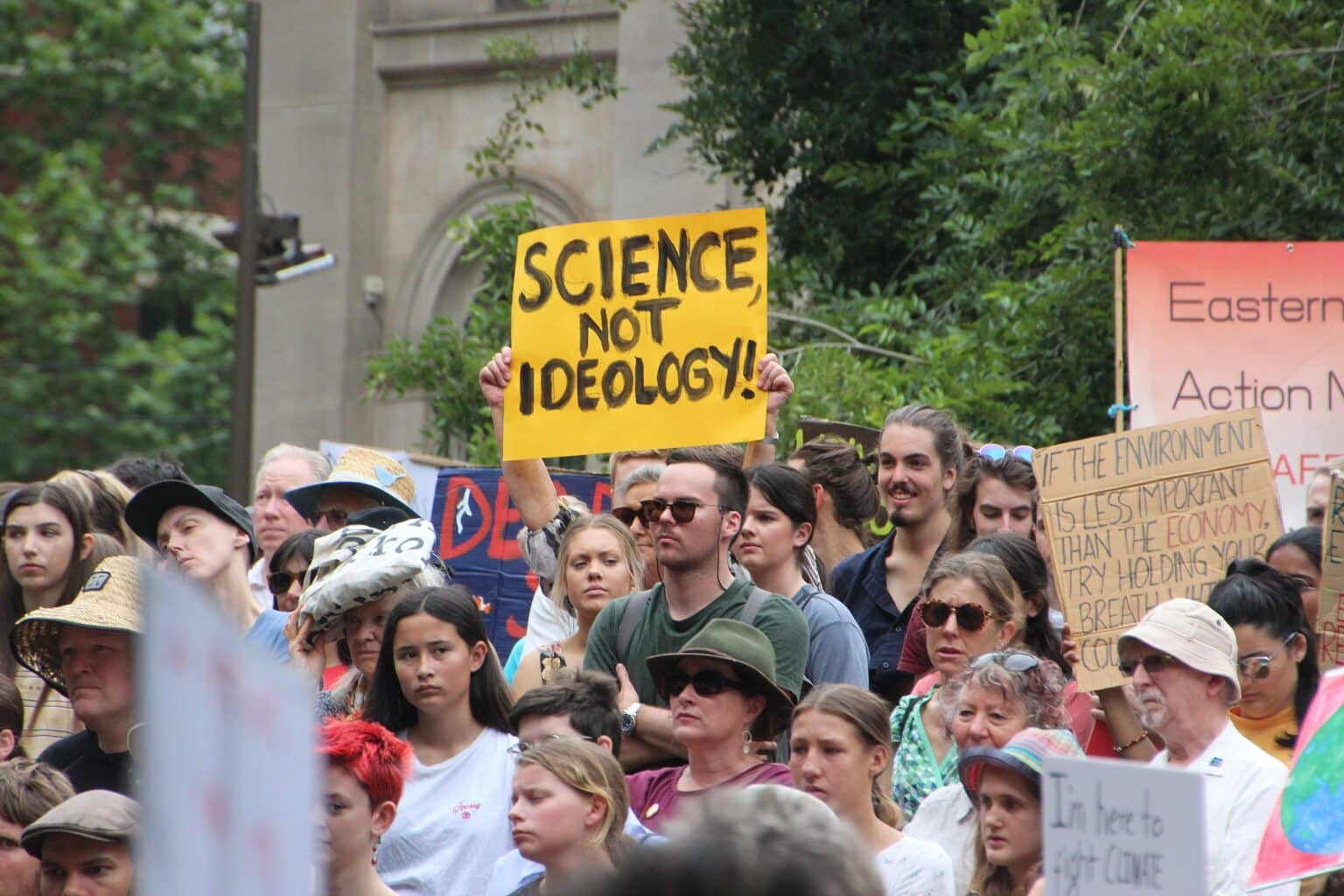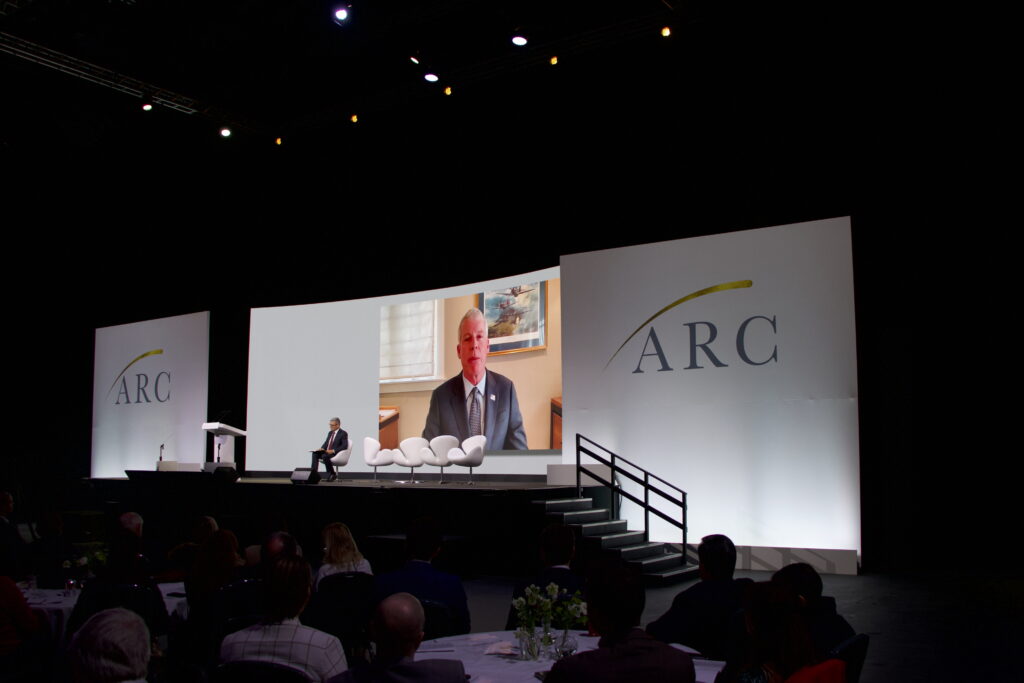The Heartland Institute, a self-described free-market think tank notorious for its climate science denial efforts, is at it again. This time, Heartland is frantically spinning the results of a survey it commissioned in its latest attempt to dispute the robust scientific consensus on climate change.
To be clear, climate experts overwhelmingly agree that climate change is happening and that humans are primarily responsible. And there’s plenty of evidence about that consensus.
For example, cognitive scientist John Cook and his colleagues examined almost 12,000 abstracts of scientific papers on climate change and global warming published over a 20-year span and found, among the abstracts expressing a position, that upward of 97% accepted that human activity is responsible for the recent increase in average global temperature. They published these results in 2013 in the peer-reviewed journal Environmental Research Letters.
That result wasn’t a fluke, either. Multiple independent studies using different methods have consistently produced estimates of the extent of scientific consensus on anthropogenic climate change among climate scientists. And these estimates converge in the neighborhood of 97%, endowing the number with a certain iconic status.
Yet the headline of a recent Heartland Institute press release on its new survey blared, “97% consensus on climate change? Survey shows only 59% of scientists expect significant harm.” The survey in question was conducted by a survey research unit at Fairleigh Dickinson University — but the desperate contortions to spin its results are classic Heartland.
The fun begins with Heartland’s definition of scientists. The various studies establishing the scientific consensus on climate change generally survey expert scientific opinion, by either inspecting articles on climate change that appear in the peer-reviewed scientific research literature or directly polling the authors of such articles, who typically have earned doctoral degrees in relevant areas of science.
In the Heartland-commissioned survey, however, although the respondents were required to have earned degrees in climatology, meteorology, physics, geology, or hydrology, the majority of them — 76% — attained only a bachelor’s degree, and just 6% earned a Ph.D. Revealingly, only 11% of the 400 respondents reported that their professional activity was best described as research.
So comparing the results of the Heartland-commissioned survey with those of the studies establishing the scientific consensus on climate change is like comparing apples with oranges — equating the opinions of people with a modicum of past exposure to the relevant science with those of scientists currently engaged in advancing scientific knowledge about climate change.
Even so, the survey report reveals that 96% of the respondents to the Heartland-commissioned survey accept that global climate change is occurring. Asked to estimate what percentage of climate change is due to human activity, 92% of the respondents selected a value between 51 and 100%, with the average estimate at 75%. These figures are, of course, not far from the iconic 97% consensus.

For a long time, the Heartland Institute has been heavily invested in disputing the scientific consensus on climate change — and not always tastefully. Back in 2012, it erected a billboard in a Chicago suburb, not far from its headquarters, featuring a glowering photograph of the “Unabomber” Ted Kaczynski, whose bombing campaign killed three and injured nearly two dozen. The billboard read: “I still believe in global warming. Do you?” That stunt was offensive enough for the group to lose a number of its corporate backers.
In 2017, in a campaign with a broader potential effect, the Heartland Institute mailed unsolicited packets of climate denial propaganda, including a booklet entitled “Why Scientists Disagree About Global Warming,” to up to 200,000 public school teachers across the country. Thankfully, the main response of science teachers was to deposit the mailing in the nearest recycling bin. As a welcome side effect, the campaign motivated some educators to redouble their efforts to educate teachers about climate science.
But now, in 2022, Heartland’s own commissioned survey undermines its central message, by confirming the 97% consensus. Amusingly, the Heartland representatives quoted in its press release can’t quite look the facts squarely in the face. “So, climate change? Yes. Humans responsible for most of it? The poll says, ‘yes,’” H. Sterling Burnett, Heartland’s environmental and climate policy center director says, as if he were mistrustful of his own poll.
But that’s not all. Even the press release’s headline is a bait-and-switch. The fact that 59% of respondents to the survey think that global climate change will cause significant harm to people alive today is wholly irrelevant to the estimate of the extent of scientific consensus on climate change. None of the 97% research addressed the issue of the harmful effects of climate change. Yet Heartland focuses on this issue as it tries to snatch a delusive victory from the jaws of statistical defeat.
Unfortunately for Heartland, there is ample evidence, albeit not from survey research, that there is a scientific consensus on the significant harm that climate change will cause — and indeed is causing. For example, in a report this year, the Intergovernmental Panel on Climate Change (IPCC) summarized that “Human-induced climate change, including more frequent and intense extreme events, has caused widespread adverse impacts and related losses and damages to nature and people, beyond natural climate variability.” The IPCC’s reports are produced with the input of leading scientists around the world and undergo rigorous and comprehensive review: they represent expert scientific opinion.
The Heartland Institute, for its part, routinely dismisses the IPCC’s credibility — without any evidence — while disseminating publications produced by something misleadingly called the Non-governmental International Panel on Climate Change (NIPCC), a network that Heartland itself sponsors. In 2011, a news article in the journal Nature described the NIPCC as ignoring “mountains of evidence about the adverse effects of global warming.” That remains sadly accurate.
The Heartland Institute’s recent press release represents yet another attempt to cloud the scientific consensus in order to delay, derail, or degrade action on climate change. Unfortunately, it won’t be the last — or, perhaps, the most absurd.
Glenn Branch is deputy director of the National Center for Science Education, a non-profit organization that defends and promotes the teaching of evolution and climate change.
Subscribe to our newsletter
Stay up to date with DeSmog news and alerts







